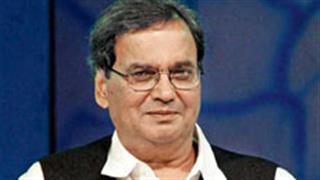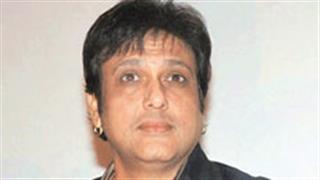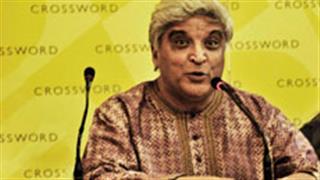Before we can ask him a question, Sanjay Leela Bhansali asks us one: "How many questions are you going to ask me?" As many as it takes to get a good interview, we say.
"Then, it's best I stay quiet," he laughs. The director-producer seems to be in a good mood although he is a fortnight away from the release of his big ticket love extravaganza, 'Bajirao Mastani'. The movie, whose seed was sowed as early as 2003, is the story of Peshwa warrior Bajirao (Ranveer Singh) and his love interest, Mastani (Deepika Padukone). It's taken 12 years and multiple star cast changes for him to get here. First, Salman Khan and Aishwarya Rai were being considered for the title roles, but since they split, the film hung in limbo. He then wanted Khan and Kareena Kapoor, but abandoned the project to work on 'Black', 'Saawariya', 'Guzaarish', and 'Goliyon Ki Raasleela Ram-Leela'.
Bajirao's first trailer released recently and it's got all the regular Bhansali trademarks - opulent settings, lavish clothes, sizzling chemistry between the stars and lots of drama. Though the 12 years haven't changed his screenplay, says Bhansali, the treatment has. "The audience has changed, so has the business of Bollywood. The audience is more evolved. I haven't changed the characters, but the making is tighter, more compact. And it's obviously more entertaining. I need to reach out to the youth. It's a challenge to make it [the film] fun and still stay true to the past."
We ask him how. He purses his lips and says, "Actually, I couldn't if I tried. I was a different person 12 years ago. I would have played drama out differently.. The pitch would have been different, the sur would have been different." But we like his work from 12 years ago, too, we gush. 'Hum Dil De Chuke Sanam' is a favourite. "'Black' is also very good and 'Guzaarish' is better. 'Ramleela' is fabulous, and raunchy!"
As he discusses his movies, you see that he excels in creating worlds that are larger than life. How does he make sure he stays real? "What is real? Can you describe the movies 'Jhanak Jhanak Payal Baaje' and 'Navrang' as relevant and real? Those are my favourite films. Can you describe Dolce Vita as grounded?" he says, and then adds, "I have always made movies that have their own worlds. I am not here to take a camera and go into a narrow lane to shoot. That's great cinema as well. But so is my art. We need my kind of cinema. People tell me they come to see my movies because they can't imagine these worlds [on their own]. It's hard work to take someone to a different place that doesn't exist. A film doesn't have to be shot in Dharavi. It has become fashionable to run down mainstream cinema."

Despite his romanticism and exaggerated rendition of mad, passionate love, Bhansali has somehow managed to make sure his female characters are brattish, sexual and always independent. "If you start being conscious of what you create, work reeks of thought and malice. I like a character because s/he is strong - they face roadblocks and get by. My cinema is not about large social issues or sending out a message. It's about personal grief and suffering and overcoming it. And through it, my characters stay dignified."
He lets his mind stray, and then says, "But it can also be that I have been surrounded by strong women since I was a child."
The conversation veers to his reputation of taskmaster. Does he instruct his actor? "Instruct less," he says, and adds, "It has to be a participatory process. I tell them, this is the line, say it. If they don't say it right, I see if I can add something. Space is important; actors need to grow. I respect the intelligence of my actor."
He is happy that his latest offering is inspired by history. "We need period cinema. Every time 'Mughal-E-Azam' was screened, my father took me to watch it. I have seen it 18 times. Why did he do that? We need to understand our past, architecture, painters, classical music, weavers... that's how we keep them alive."
That said, he has a simple appeal before the film opens: "Be in a state of love. Otherwise, my telling a love story is of no use. Just go there and be in love, and all is good."
Making music
"Although directing was tough, making music is tougher. It's always tough to find a sound that doesn't sound old fashioned, and people can sing to. Today's audience is clear - they like it or don't. Deewani Mastani is a song I made in 2002. I've held it inside, simmering for long. When I had to shoot it, I decided to give it the best set, best choreography - and it's the same melody. To make it modern while keeping the romanticism alive, was tough. I listen to its music every day. My car commute starts and ends with tracks from Bajirao. My poor driver is troubled."




















